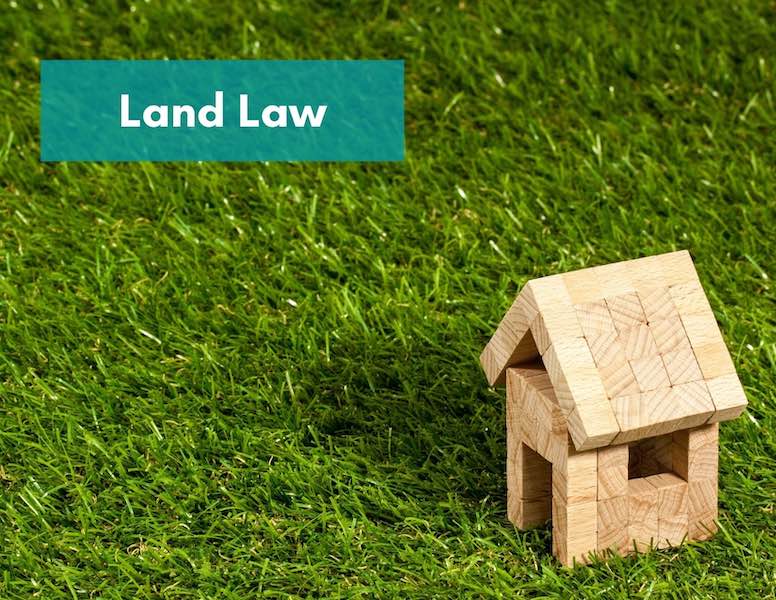Honey, There’s A Squatter on Our Land! Squatters Rights in Malaysia & the Legal Remedies for Landowners
by Preveena Ravindra Kumar ~ 19 January 2021
When it comes to dealing with land matters in Malaysia, the law is relatively simple and straightforward. Looking into fundamental legal concepts, most are familiar with the concepts of ownership of land, possession of land, legal interest and legal title in the land.
On one end of the spectrum, ownership of land is the highest right that an individual can possesses which warrants the right to exclusive use and enjoyment of the land.
On the other end of the spectrum, one comes across individuals who without lawful permission and/or consent and/or authority occupy another person’s land. The latter of the two are commonly known as squatters simpliciter.
This article aims to set out the law on squatters rights in Malaysia and the available legal remedies and/or legal recourse available to land and/or property owners when dealing with unlawful occupants on their land.
Squatters: The Definition
There is no black and white provision in the law which defines who and/or what amounts to a squatter. Case law, however, has shed some light in attempts to define the same. This is evident in the case of Bukit Lenang Development Sdn Bhd v Penduduk-Penduduk Yang menduduki Atas Tanah HS (D) 151079-HS(D) 151601, Mukim Plentong, Daerah Johor Bahru [1999] 6 MLJ 26, whereby squatters were defined as a:
“person who enters upon another’s land and remains thereon to the detriment of the present owner is a trespasser, pure and simple”.
On the other hand, in the United Kingdom case of McPhail v Persons Unknown [1973] 1 Ch. 447, squatters were defined as :
“He is one who, without any colour of right, enters on an unoccupied house or land, intending to stay there as long as he can. He may seek to justify or excuse his conduct. He may say that he was homeless and that this house or land was standing empty, doing nothing. But this plea is of no avail in law.”
From the plain and simple reading of the case laws, squatters can summarily be understood as individuals and/or persons who occupy another person’s land and/or premise illegally without any valid claim to the legal title or rights towards the land, without making any form of monetary payment to the owner of the land and without the lawful permission/consent and/or knowledge of the owner of the land.
Squatters Rights: The Law in Malaysia
The law is clear in Malaysia when it boils down to squatter rights. The National Land Code 1965 (“the NLC”) is one of the go-to statutes when discussing their rights.
However, it is important to note that said statute is not very favourable to squatters themselves. This unfavourability is particularly highlighted by Section 48 of the NLC which expressly states that “no title to State land shall be acquired by possession, unlawful occupation or occupation under any licence for any period whatsoever.”
The plain and simple reading of the statute highlights that the word and/or term ‘squatter’ is not used, however, in turn, the NLC uses the term unlawful occupation when dealing with squatters. The provision also expressly sets out that unlawful occupation of State land, even after a long duration of occupancy does not automatically enable the occupier to obtain title to the land.
What this comes to show is that Section 48 makes it crystal clear that the only way for one to get the land title in State Land is through the formal application via the NLC.
The law on squatters when it comes to State Land is generally very strict and there is little to no room for manoeuvring over it.
This is further evident even in instances where squatters have been in unlawful occupation of land for long periods of time. The law is once again not favourable as Section 341 of the NLC expressly states that “adverse possession of land for any length of time shall not constitute a bar to the bringing of any action for the recovery by the proprietor or any person or body entitled to an interest therein”.
This section indicates that the real and/or original owner shall have the right to repossess their land notwithstanding the period of the possession by the illegal/ unlawful proprietor.
This might come to the relieve of many land owners who may no longer reside on their land and/or land owners who are overseas and therefore may not notice nor have any active knowledge of the illegal occupiers on their land to take the necessary immediate actions.
Courts’ Reaction to Squatters on State Land: No Right in Law Or In Equity
The Federal Court in Sidek Bin Haji Muhamad & 461 Ors v The Government of The State Of Perak & Ors [1982] 1 MLJ 313 (“the Sidek Case”) is one of the pioneer cases which took a position on squatters rights in law and in equity.
In particular, the Federal Court held that squatters have no right either in law or in equity and that a court of equity will never assist squatters to resist an order of possession illegally acquired.
From the close scrutiny of the provisions in the NLC alongside the Sidek Case, what comes to bear is the negative response the law has when dealing with squatters rights.
This position of which may be contrastingly different from the position adopted in the European countries whereby the act of ‘squatting’ may be rendered acceptable and therefore garnering some favourable rights for squatters.
There Is A Squatter on My Private Land: What Are My Remedies?
For land and/or property owners (ie, those falling under the realms of private land and not State land), the most straightforward remedy is to initiate a suit for trespass under the law of tort and sue for damages. But realistically, what good does that do? Squatters may still very well be occupying one’s premises illegally and unlawfully.
All is not lost as the most effective and or relatively cheaper way to evict an unlawful occupier be it on State Land and/or on private land is via summary proceedings under Order 89 of the Rules of Court 2012 (“Order 89 of the ROC 2012”).
Interestingly, invoking Order 89 of the ROC 2012 does not require the land owner who is seeking the order to ascertain the squatter’s name and/or identity for the purposes of applying for the possession order.
This order recognizes and acknowledges the difficulty that land owners may face in trying to identify the unlawful occupier on their land and therefore does away this this ‘identifying’ requirement. Important point to note however is that this order is not applicable in relation to claims for the recovery of the property occupied by tenants whose tenancies have come to an end.
In attempts to do away with identifying the identity of the squatter, the law still requires the applicant/ land owner to abide with the following requirements in their application. Some of which include the need for the applicant to state:
- His interest in the land;
- The circumstances in which the land has been occupied without licence or consent and in which his claim to possession arises;
- That the applicant does not know the name of any person occupying the land who is not named in the summons;
- That the applicant has taken reasonable steps to identify the occupants of the land; (steps taken have to be particularised and described);
Upon a successful application under Order 89 of the ROC 2012, does that ordinarily mean that squatters will automatically be evicted from the land? Do squatters not have a say to refute this application? There has been a slight shift in law in respect of squatters. The current trend is that squatters can and have raised triable issues in attempts to defend their case.
Based on case law, the triable issues ordinarily raised by squatters include that of having obtained express consent to occupy the land and majority of the time that this consent was obtained from the State Government.
In those instances, case law demonstrates the reluctance of the Courts in jumping to the gun to allow an order for possession under Order 89 of the ROC 2012, but instead allows parties (ie, the land owner and the unlawful occupier) to raise their disputed issues by way of a full trial.
Conclusion
There are myriad of factors which contribute to the surge in the number of squatters worldwide. The most obvious factors are that of economic, social and surprisingly religious factors. Whilst the law is generally unfavourable towards the rights of squatters and their protection, this does not ordinarily mean that land and/or property owners can sit on their rights comfortably.
As landowners, we have a duty to safe keep our ownership, legal interest and legal title and therefore have to take active and pragmatic steps (where necessary) to protect our rights and interest at all cost. This even more so when it involves our precious land and/or property which we have highly invested in.

